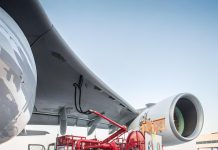Over 4,000 aviation professionals from 150 countries gathered in Nairobi, Kenya, to discuss the future of air cargo, industry trends, and the challenges facing global freight logistics. The event, themed “Air Cargo Africa and Transport Logistics,” aimed to address issues such as infrastructure limitations, cargo preservation, and efficient evacuation to align African air cargo operations with global standards.
During the opening session, Emirates Skycargo’s Divisional Vice President, Badr Abbas, emphasized the airline’s commitment to overcoming disruptions and delivering cargo efficiently. Despite global challenges, including those brought by the COVID-19 pandemic, he assured stakeholders that Emirates Skycargo remained resilient and prepared for future demands. To meet the increasing demand for air cargo, Emirates Skycargo announced plans to expand its fleet by adding 21 new aircraft by 2026, enhancing its already 255-strong fleet. Abbas highlighted the role of e-commerce in reshaping the global economy, reinforcing the necessity for a larger fleet, including B777, B747, and A350 aircraft.
Dubai is also positioning itself as the world’s largest cargo hub, with 382,000 tons of cargo freighted across Africa weekly. Abbas reaffirmed that disruptions are part of the industry’s DNA and that Emirates Skycargo continues to evolve in response to changing market dynamics.
The Director-General of the Kenya Civil Aviation Authority, Emile Arao, praised the dedication of industry professionals in advancing air cargo operations. He noted that while cargo demand is projected to grow by 4-6%, outpacing the projected capacity growth of 3-4%, challenges remain. These include high operational costs, fuel price volatility, regulatory compliance issues, and supply chain disruptions. Arao cited geopolitical tensions, such as conflicts in the Red Sea, as factors leading to rerouted sea freight, increasing reliance on air cargo. He added that delays in aircraft production by manufacturers like Airbus could further constrain capacity expansion.
According to IATA projections, global air cargo revenues are expected to reach $157 billion by 2025, accounting for 15.6% of total airline revenues. Despite projected decreases in jet fuel prices to $87 per barrel by 2025, economic uncertainties, inflation, and trade policy adjustments in major markets like the U.S. and EU may impact air cargo volumes, particularly in the e-commerce sector.
Kenya Airport Authority Chairman, Caleb Kositany, emphasized the significance of the conference in fostering collaboration among key global stakeholders. He highlighted the role of multimodal transport solutions—air freight, maritime shipping, rail networks, and road transportation—in facilitating trade, particularly under the African Continental Free Trade Area agreement.
This year’s event marks the return of Air Cargo Africa to Nairobi, a city recognized as the headquarters of air cargo in Africa. The conference, which was first held in 2011, has evolved into a platform for uniting industry leaders, unlocking Africa’s logistics potential, and driving economic growth through improved transport and cargo solutions.
With Africa’s air cargo sector experiencing rapid growth and the continent’s rich resources—including perishable agricultural produce and minerals—attracting global attention, experts at the event stressed the need for efficient, reliable, and innovative air cargo solutions to meet increasing demand and enhance Africa’s role in global trade.













